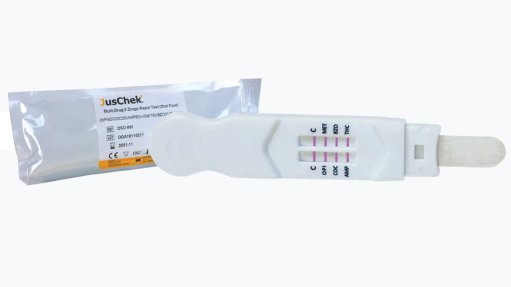SA’s recyclate ‘national flower’
Since 1976, the King Protea has been this country’s national flower and also appears on the national coat of arms. Previously, it was the humble Suikerbossie. The King Protea was chosen because it symbolises South Africa’s beauty and represents the “flowering of our potential as a nation in pursuit of the African Renaissance”, according to www.info.gov.za.
The website www.teleflora.com states: “Proteas are among the oldest families of flowers on Earth, dating back 300-million years. Greek legend tells us that protea were named after Proteus, the son of Poseidon. A sea god who had the power to know all things past, present and future, Proteus was defiant and preferred to nap on the island of Pharos rather than prophesise. To deter those seeking his insights, he would change his shape at will, and it is said that the protea flower was named after him because it, too, presents itself in an astounding variety of shapes, sizes, hues and textures to make up more than 1 400 varieties. With its mythological associations to change and transformation, it is not surprising that, in the language of flowers, the protea symbolises diversity and courage.”
Arguably, South Africa’s real ‘national flower’ is the plastic bag, which is found everywhere – adorning fences, fluttering in trees and residing in ditches. On May 9, 2003, the Environmental Levy on Plastic Bags was introduced, and this was regarded by many as government’s notification of the extinction of the plastic bag. But alas, the plastic bag is still surviving – and thriving.
To all intents and purposes, as the English proverb goes, the road to hell is paved with good intentions. Retailers and businesses sold plastic bags at a profit, as not many shoppers would be able to tell the Plastic Bag Levy amount or the cost of the plastic bag, which is negligible. Now the Section 21 company Buyisa-e-Bag, government’s recycling initiative, is no more. This has been the case since the Department of Forestry, Fisheries and the Environment’s media statement of June 1, 2011.
Just a quick reminder of what Buyisa-e-Bag was supposed to be: it was established to administer the funds by promoting waste minimisation and awareness initiatives in the plastics industry, expand collector networks, create jobs and kick-start rural collection by empowering small, medium-sized and microenterprises and creating additional capacity in nongovernmental organisations.
This, obviously, begs the question: What is the Plastic Bag Levy now used for? Quite obviously, it is a fiscal measure; in other words, it provides government with revenue, and does not serve to address the negative externality of plastic bags, which is a major concern. It is unlikely that consumers will change their behaviour, and with government out of play as far as recycling is concerned, only punitive legislation and regulation will force plastic bag producers and importers to change their behaviour.
After a surprisingly long delay, on April 7, the Department of Environment, Forestry and Fisheries published regulatory amendments concerning plastic bags in the Government Gazette, and these are applicable to manufacturers and importers alike. From January 1, 2023, plastic bags must be made of a minimum of 50% postconsumer recyclate, with the percentage increasing to 75% from January 1, 2025, and to 100% from January 1, 2027.
In accordance with the amended regulations, no person will be allowed to manufacture, trade or commercially distribute domestically produced or imported plastic bags for use in South Africa, unless they comply with the minimum postconsumer recyclate requirements.
Contravention of the regulations will lead to a fine not exceeding R5-million or to a five-year prison term and, in the case of a second or subsequent conviction, to a fine not exceeding R10-million or to imprisonment for up to ten years or, in both instances, to both a fine and imprisonment.
Article Enquiry
Email Article
Save Article
Feedback
To advertise email advertising@creamermedia.co.za or click here
Announcements
What's On
Subscribe to improve your user experience...
Option 1 (equivalent of R125 a month):
Receive a weekly copy of Creamer Media's Engineering News & Mining Weekly magazine
(print copy for those in South Africa and e-magazine for those outside of South Africa)
Receive daily email newsletters
Access to full search results
Access archive of magazine back copies
Access to Projects in Progress
Access to ONE Research Report of your choice in PDF format
Option 2 (equivalent of R375 a month):
All benefits from Option 1
PLUS
Access to Creamer Media's Research Channel Africa for ALL Research Reports, in PDF format, on various industrial and mining sectors
including Electricity; Water; Energy Transition; Hydrogen; Roads, Rail and Ports; Coal; Gold; Platinum; Battery Metals; etc.
Already a subscriber?
Forgotten your password?
Receive weekly copy of Creamer Media's Engineering News & Mining Weekly magazine (print copy for those in South Africa and e-magazine for those outside of South Africa)
➕
Recieve daily email newsletters
➕
Access to full search results
➕
Access archive of magazine back copies
➕
Access to Projects in Progress
➕
Access to ONE Research Report of your choice in PDF format
RESEARCH CHANNEL AFRICA
R4500 (equivalent of R375 a month)
SUBSCRIBEAll benefits from Option 1
➕
Access to Creamer Media's Research Channel Africa for ALL Research Reports on various industrial and mining sectors, in PDF format, including on:
Electricity
➕
Water
➕
Energy Transition
➕
Hydrogen
➕
Roads, Rail and Ports
➕
Coal
➕
Gold
➕
Platinum
➕
Battery Metals
➕
etc.
Receive all benefits from Option 1 or Option 2 delivered to numerous people at your company
➕
Multiple User names and Passwords for simultaneous log-ins
➕
Intranet integration access to all in your organisation

















